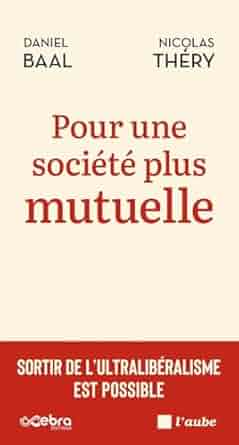Mutualism is by definition a long-term process, and one could almost praise it for its patience. How can it be the solution to a fragmented society, to the rise of individualism, and where each decision accelerates at the pace of AI, …
What remains of the legacy of Raiffeisen, one of the founders of mutualism and its raison d’être of the “Help and Serve” era?
This is the subject of the essay written by Daniel Baal and Nicolas Thery, who wish to convince readers that mutualism is anything but out of time and that it has never been more modern in the face of the challenges that lie ahead.
Through their experiments as Presidents within Crédit Mutuel Alliance Fédérale, they present their decisions and strategies, particularly since the adoption of the status of a company with a mission in 2020.
The essay promotes mutualism through evidence from its stakeholders. Mutualism is only effective if it is nourished by the diversity of its elected representatives and employees around a common vision. It is the commitment of the collective that takes precedence over the interest of the individual, by putting society and its needs at the heart of attention.
The authors remain objective, however, because for this mutualism to remain true to its values and ambitions, there is still some way to go to improve the diversity of profiles and the feminization of management and supervisory bodies. “Stairs are cleaned from the top”: the exemplarity imposed by the function is essential to engage all stakeholders.
Faced with the consequences of global warming, an interesting parallel is described in the essay between a financial crisis and a climate crisis. The accumulation of speculative wealth or greenhouse gases eventually gives way. Mutualism, by being centered on the needs of its territory, responds to the urgency of environmental and solidarity issues.
The authors defend the societal dividend announced in 2023. By allocating 15% of its net income to the benefit of society each year, it wishes to act and support the territories in the ecological transition.
Not to mention that Crédit Mutuel, like its 2 competing mutual banks (Crédit Agricole and BPCE), are the first contributors to corporate tax in France and thus to the financing of public services and investments necessary for energy and societal transitions.
Coincidentally, this essay is published in the “International Year of Cooperatives 2025” decreed by the UN. One more argument, so that the foundations and values of mutualism must be taken up by all companies in the social and solidarity economy; and all citizens who wish to act “for a more mutual society”.
Note by Sophie FRIOT


